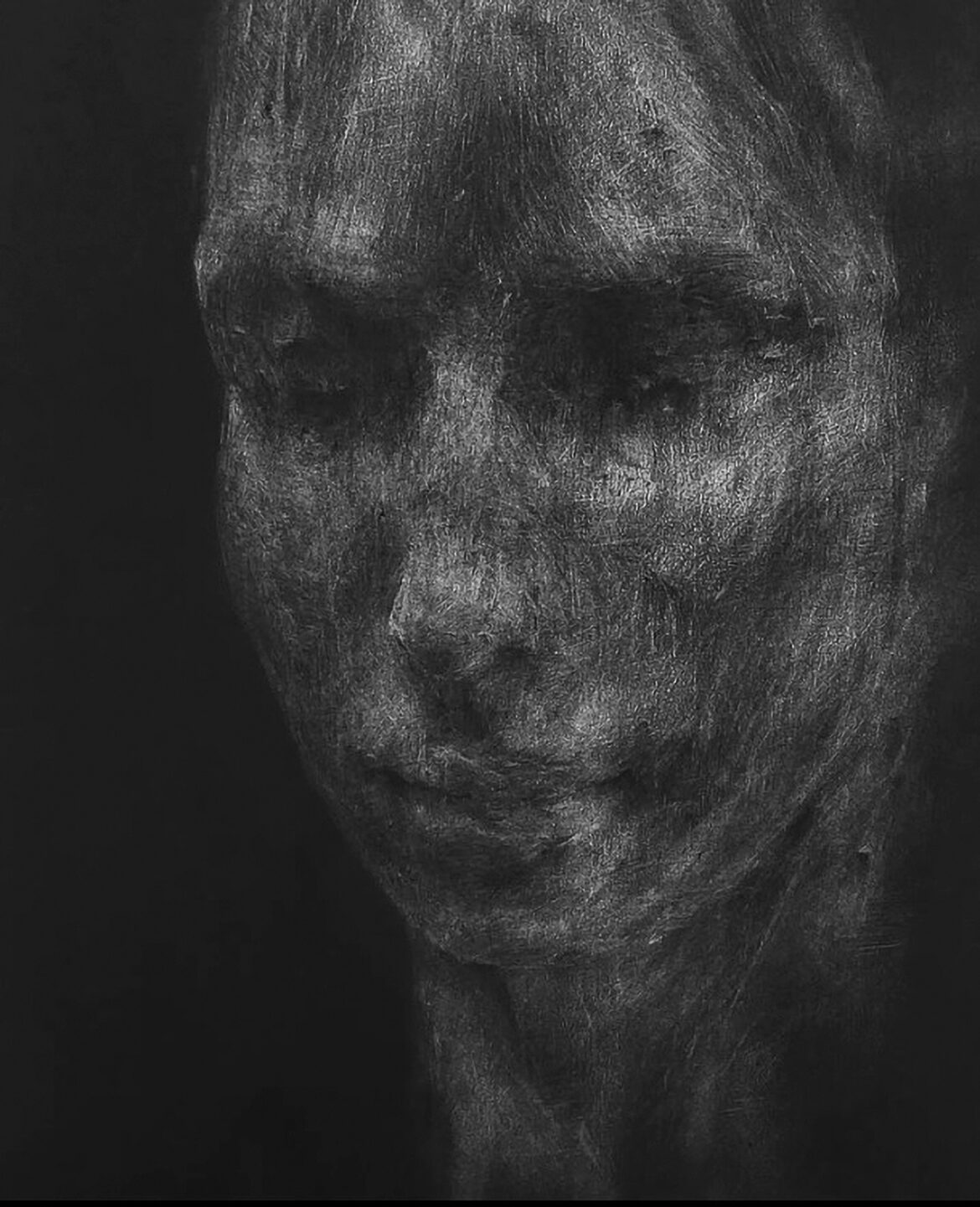Autore
Indice
1. The Problem
2. Tools and Trends
3. The Output: Non‐Realism versus Material Reductionism in Aristotle’s History of Philosophy
4. Concluding remarks
↓ download pdf
S&F_n. 29_2023
Abstract
Aristotle's Material Reductionist Account of History of Philosophy
In his account of the flux of ideas, Aristotle searches the models of his predecessors to find an alternative cause for this; and he finds none. Indeed, no answer is given either by himself or by them as to why nature conforms to order or to no order at all. For this reason Aristotle’s bewildering multi‐variety of causes‐essences is not realisable unless this variety refers to an ideal of unity beyond it. The order, however, that accounts for this unity is beyond understanding in Aristotle. All that man can do is to dedicate himself to the futile pursuit of an ideal of unity. The pre‐Aristotelian philosophers and Aristotle himself resort to the language of myth to make an uneasy compromise between what we can do and what we cannot do regarding this realisation. This attribute of non‐realism is best ascribed to him by Thomas Aquinas; whereas Demetrius Cydones’ (1324‐1398) hellenised output of Aquinas’ Summa Theologica stresses a material reductionist strain as due to Aristotle’s limited understanding of this flux. To this end the functions of ratios and causal principles, once defined by his predecessors and by himself as well, are real because they are the only possible ones. However, any general statement about reality of the form “all is x” – where x is the pre‐Aristotelian idea of water, air, intelligence, love and strife, etc. – has been the result of confusion. We enmesh Truth with the above‐mentioned principles. However exclusive, necessary and sufficient these principles may be, they cannot give us irrefutable propositions regarding the idea of Truth about Reality.
- The Problem
Essences are not the real natures of kinds, as Aristotle had initially hoped; but he later realised his mistake. Charles’ ingenious resolution of the problem concerns Aristotle’s idea of the inter-dependency of definition and explanation[1]. Charles asserts[2] that scientific knowledge must consist in knowledge of causes, in that all essences are per se causes of a given type and all such per se causes are essences. A different account[3], though, bases itself on Aristotle’s limited understanding in this field, stressing that beyond the above-mentioned theoretical, all-embracing goal of principles we can explain[4] no further; this interdependence of definition and explanation derives directly from the relevant experience we currently possess and not from any inexorable laws governing nature. Instead, an emphasis on Aristotle’s non-realism refers mainly to turning the ideal concept of the world itself, and its history, of which we have partial knowledge, into reality. Mauro Bonazzi alludes to such an account – which opposes Plato’s[5] – as expressed both by Aristotle and his predecessors. The strong link between the rational and the real in Plato is undermined by Aristotle’s forefathers and by Aristotle himself. The realisation that the ideal or the wonderful are inexplicable is founded on the dead-end in search of any absolute truth. Here Vegetti’s ideas on this realisation is of the utmost importance[6]. Our idea of science is too far apart from the ideal or the wonderful to contradict them or to be contradicted by them; simply because they occur outside well-defined sets of circumstances[7]. Thus, that Aristotle’s ideas are proved false by medicine (and vice-versa), shows merely that two different conceptual worlds are too far apart from each other. The one indicates what we can do and the other what we cannot do. Certainly, a minor difference exists between what facts we formulate and what values we pursue. Vegetti makes this point in order to stress the transition in those primitive times of thought from the “personal” language of culpability and moral, political and legal responsibility to the abstract expression of cause. Wittgenstein would use the word “meaningless” instead of abstract[8]: neither the ideal nor the wonderful can be grasped. They are beyond understanding; clearly unattainable for mankind. It is the Hippocratic doctors[9] rather than the predecessors of Aristotle who manage to gain partial knowledge of causal principles. Is it then in a material reductionistic way that, as Vegetti states, the universal and necessary connection that binds things in the cosmic cycle is conceived in the moral/juridicial terms of guilt and punishment rather than those of causal explanation[10]. It is medicine above all that lifts the causal structure of explanation into the realm of an appreciably conceptual generalisation, Vegetti continues[11]; the abstract paradoxically gives way to the concrete.
- Tools and Trends
The lack of causes, nevertheless, of which we can have a partial knowledge, can be traced in Aristotle’s dictum regarding the limits which we assign to the overall function of the history of philosophy and its methodology. It is not possible for things to be explanatory of one another, he states[12], simply because the explanation is prior to what it is explanatory of. Thus, we will only achieve tautology here if we account for a y that is caused by x and establish this x just as what causes y. Then y is caused by the cause of y[13]. Illusory and worthless explanations of this sort simply show that we are outside the realm of empirical enquiry and there is nothing we can do to reduce the intelligible to the sensible. We must not therefore postulate the intelligible as able to provide the explanation we seek for the sensible. This has caught Cydones’ attention regarding our inability to be led to understand the cause of physical effects[14]. Cydones, a scholar and a politician with a fervor for latin Christianity translates Aquinas’ Summa Theologica and his Summa contra Gentiles thus making available Aristotle’s ideas in the Occident. It has been argued[15] that neo-hellenic philosophy starts at this era (circa 1355) with this exchange of ideas between Greece and the West. Cydones in his translation emphasises reductionism in Aristotle; whereas Aquinas minimises it, thus giving way to Aristotle’s non-realistic account of the flux of ideas. His hellenised translation of Aquinas’ Summa Theologica is influenced by Aristotle’s conviction that given causal principles do not govern nature. We cannot definitely determine why any result occurs, Aristotle avers[16]. Aquinas, on the contrary, reduces causes to the omnipotence of divine reason[17]. He states without citing Aristotle that which surpasses the faculty of nature, cannot be natural nor acquired by the natural powers, since a natural effect does not transcend its cause. Therefore, he adds, charity can exist in us neither naturally, nor through acquisition by the natural powers, but by the infusion of the Holy Ghost.
- The Output: Non-Realism versus Material Reductionism in Aristotle’s History of Philosophy
Our methodology is continuously self-correcting and it continuously tells us what ordinarily happens. We should persevere in our efforts to grasp what it is which triggers our capacity to form images of time and what this could show regarding peace, ethics, time and reconstructions of myth. The history of ideas is made up of all of these. Anaxagoras idea of an impassive and unmixed mind taken by Aristotle[18] to be the cause and control of motion is cited by both Aquinas[19] and Cydones. Aquinas stresses that an abstraction from sensible phantasms constitutes the perfect intellectual operation. Cydones[20], however is quick to stress Aristotle’s[21] refutation of this idea: nothing moves itself, unless containing within itself the source of motion. This does not mean that anything can cause motion. It only shows that it is “passively” subjected to the experience of motion; anything thus can simply “suffer” motion. Thus, motion is caused as long as nothing hinders it[22]. The text here is cited by Aquinas[23] who has missed, however, the concrete event of unhindered motion. Any contingent cause, i.e., would not be the proper obstacle to, say, the confession of faith. As has been cogently argued by E. Moutsopoulos[24], Aquinas when translating Aristotle simplifies; whereas Cydones translating Aquinas into Greek balances both thinkers’ views. Moutsopoulos produces evidence on Aquinas’ simplification of Aristotle; whereas Cydones eases off the tension between faith and reason. In fact the evaluation of their work as non-realistic and reductionistic is what seems a correct reading of Aristotle. The fact is that Aquinas’ frequent use of religious terms obscures the meaning as we understand it (and as Aristotle, too, understood it). Theological concepts cannot offer us knowledge of Truth, however hard they attempt to complete scientific concepts[25].
Noam Chomsky[26] avers that we are not capable of grasping with our minds the logically impossible, the unknown, which remains beyond understanding and expression. For this reason, the fundamental physical mechanisms that underlie the linguistic expression of the mind are unknown, despite all attempts to come up with an ultimate and complete answer which can be tested against psycho/physiology. Nevertheless, speaking of mind continues to be speaking at some level of abstraction of yet-unknown physical mechanisms of the brain, Chomsky adds. This inevitable material reductionism is relevant to Cydones’ account of Aristotle’s fragile understanding of the flux of ideas. Thus, it is impossible for Cydones to definitely, once-and-for-all accept viewpoints and significances, as formulated by Anaxagoras’ overall guiding image. Is it absurd to separate the sensible from its image?[27] Cydones is a believer in Aristotle’s non-realistic account of the world and its ideas; thus with the unprofitability of Aristotle’s model of the history of ideas. Material reductionism is clearly in evidence here.
One is completely at a loss to understand both how such images activate our understanding of meanings and what triggers them. Bonazzi’s ingenious account of Heraclitus is to the point here[28]. Heraclitus, a philosopher of becoming[29], formulates an overall picture of reality: that all is war is its governing principle. The reasoning on which this is based is commonly seen[30] as being exemplified by the principle of fire[31]. Change, for Heraclitus, occurs at a level that surpasses all strife and contradiction brought by war in the spatio-temporal order of events. This order is clearly a rationalistic one as Hegel, among others, concurs.
Again, however, we are left short of the level where all contradiction will be definitely, once-and-for-all reconciled and truth will be attained. This lessens neither Heraclitus’ powerful image of historical becoming, as assigned to him by Bonazzi, nor Aristotle’s theory of the inherent weakness of rationality. Cydones insists[32] on making known Aristotle’s[33] dictum that empirical contact and assertion are part of our practices to attain to the truth, whereas non-contact leads to ignorance. Nothing can testify more to the ideas of Aristotle’s predecessors than that; especially by Aristotle adding at this point that assertion is not the same as affirmation. Aquinas’ formulation on the contrary[34] eschews such a production of evidence stressing the rationalistic quality of knowledge. The conditions determined by faith must only rationally be realised by believers. Excellence in deliberation will be correctness with regard to what conduces to the end of which practical wisdom is the true apprehension, Aristotle states[35]. Cydones questions here the possibility of this excellence in the unqualified sense: ingenuity in deliberation links to what conduces to practical wisdom. It is beyond any reasonable doubt that philosophers before Aristotle had deliberated well; however in a particular – i.e., inevitably relativistic – sense of excellence. Aquinas prefers to stress that such a thing as perfect reasoning exists[36]. Bodily senses are reduced to the intellectual.
Aristotle’s comments[37] on naming and reality refer always to the above-mentioned procedures that take place within complex sets of conditions. Names do not exist naturally; they are spoken sounds which have been given a conventional significance. This happens after sounds have been accepted as symbols of meaning. No part of such a spoken sound is significant outside its symbolic context. This practice, though conventional, is paradoxically timeless. Aristotle again at this point hints at a nature that does not obey any given causal principles.
Our idea of reality, thus, cannot surpass meanings and attributes ascribed to it within complex sets of conditions. This idea has again caught Cydones’ attention in his translation[38]. Aquinas overlooks it[39]. He states that convention is reduced to God’s timeless authority. Cydones is quick to underline Aristotle’s dictum[40] that the necessary, i.e., the compulsory, is painful, as it is in opposition to freedom of choice. Cydones mentions at this point the necessary quality of the rational; but only in relation to deprivation of freedom[41]. How does deprivation of freedom link to material reductionism? This is about “ought” statements that link with this deprivation (if made at random, where we have no relevant knowledge). Material reductionism becomes more evident if we proffer such statements where we should not; simply because we are definitely not in a position to explain them[42]. Aquinas has nothing to add here[43]: God does not love a cheerless giver fulfilling her/his vow. Thus, excellence cannot be a form necessary to knowledge, as Socrates thought[44]. Aristotle’s[45] disbelief in Plato’s idea that morality links with rationality is evident here. It has also caught Cydones’ attention that excellence involves reason. However, Aristotle does not suggest an alternative rationality to morals. He only alludes to the arbitrariness of any limitless use of reason, instead of its weakness – something unthinkable for Aquinas[46]. It is to the science of the service of God that the science of ethics must obey.
To think of the infinite, Aristotle states, we must play the language game to express it within the rules: in the same way as we say “it is day” or “it is the games”[47]. We need to grasp the infinite in bodily terms: it thus becomes a sensible body, he adds[48]. The infinite is not a body[49] outside the world as physicists claim, he states. Cydones[50], stresses Aristotle’s reductionism with his comment on Aristotle’s[51] dictum that no finite object can be reduced to the infinite by addition: Plato’s theory relating to the “monad” and the “decad” are impractical and thus meaningless[52] when linked in abstracto with the infinite, but Aquinas fails to see this[53]. Aquinas states, holds good in those things which have the same kind of quantity, but not in those which have different kinds: thus however much a line may increase, it does not reach the quantity of a superficies. Now the quantity of a wayfarer's charity which follows the knowledge of faith is not of the same kind as the quantity of the charity of the blessed, which follows open vision. Hence the argument does not hold good, Aquinas concludes.
Is what triggers historical time real? For Aristotle it is not; because this answer lies altogether outside the scope of explanatory concepts and competence. Thus, if we assign to our subject-matter certain functions outside the circumstances of the ordinary, we leave it indefinite. This is also expressed in Aristotle’s account of Thales’[54] and Parmenides’[55] mythology[56] of the world governed by water and eros respectively. Aristotle’s intention[57] to either find another kind of cause or be more convinced of the correctness of those maintained thus far[58] is in contrast to all previous history of philosophy, despite the fact that all philosophers before him[59] investigated the being and philosophised about reality. His ingenious remarks, however, about the opinions of his ancestors and earlier predecessors lead us to understand that they were faced with the impossibility of finding other solutions than those already established by themselves[60]. This fits with Wittgenstein’s dictum that the real is the possible; unless otherwise. Anaxagoras’ nous (intelligence), Empedocles’ philia and neikos (love and strife), Pythagoras’ numbers enacting morals; all these stand for the real functions of the world of ideas because, according to these philosophers, they were the only possible solutions. But this means exactly that science and reason, though attempting to decipher the riddle of reality, remain always incomplete[61]. This is true for Wittgenstein also who investigates the validity of this criteria; this remains in the realm of the logically impossible. Outside the ordinary use of what can be said of the unknown there is nothing more which any language can provide us with[62]. We shall never access the real essences of things because we lack the exactness of criteria to succeed in so doing. However, any causal similarities between things and our classificatory practices of enquiry, must provide standards of correctness (however inexact these may be) for this enquiry[63]. But we can use Aristotle’s model of the history of philosophy as an infallible[64] standard – though inexact – for deciding whether the results of our inquiry into the history of ideas are reducible or non-reducible to the unknown. Aristotle further clarifies his thoughts by offering the philosophy of Empedocles as an example of nature not being governed by fixed ratios. Ratios fail to conform to our bewildered view of nature. Empedocles says[65] that the bone exists by virtue of the ratio of bone to other components of the body. The ratio thus substantiates what is flesh. It is on account of this ratio that flesh and bone and everything else exist; not on account of the matter (fire and earth and water and air). Why nature has a non-material cause remain impossible to grasp. We cannot name, Aristotle states[66], any other cause beyond those which have been outlined in an imprecise way by our forefathers. While in a sense causes have been wholly described by them, in another sense they have not been described at all. This does not mean that their models for understanding the flux of the history of ideas are false; they are simply not sufficient[67]. Their abiding interest is that they cannot supply us with irrefutable propositions regarding historical truth. The logic here is poor, faulty, almost absurd, since it closely follows the inductive method[68]. Thus any general thesis about reality, even one proposed in recent times[69], expressed in statements of the form: “All is x” – where x stands for matter, mind, life or whatever – must be the result of misunderstanding the exclusiveness of the models examined and taking them for truth. Aristotle together with his predecessors cherishes the nature of myth, which is not restricted to a particular date or time[70]. Myth takes hold of us with a sort of authority, so that we cannot see things “otherwise”. A myth for instance can neither be refuted nor proved true. Thus, we may wonder if a myth constitutes an empirical statement within the language game or the historical proof game; but, even so, what is to be taken as a rule within such games, is necessary and admits of no conceivable exceptions. What is the character of our investigation when we try to find out whether or not C is a criterion for S, or of our statement if we say that it is? Are we stating something logically necessary or merely the empirical fact discovered by observation? How then are the relevant mythological terms actually used?
To be fair to Vegetti’s remarks on the above-mentioned physiological terms used to understand the meaning of justice in the pre-Aristotelian era of philosophy, it is necessary to note that language is used in a mythological way in pre-Aristotelian epistemology[71]. Certainly a godlike being cannot share our ability to use the name of justice the way we use it, according to Heraclitus[72], simply because this being does not share our experiences of need and scarcity. Thus, godlike groups of beings that are not related to us do not share the rules of our language-game; thus there is no need to ask them what they think about it. This is Aristotle’s answer to the above mentioned questions of the use of language and the relevant mythological terms. Here Aristotle cannot escape Heraclitus’ route. There is no need, Aristotle warns us, to insist on things that we cannot do, unless we use mythological terms, as elaborated by the pre-Aristotelian tradition.
Heraclitus shows a reductionist view of the use of language in his B2 fragment[73]: “although discourse is shared, most people live as if they had a private understanding”. Does this show that realism is reduced to a form of solipsism in the way Wittgenstein understands it?[74] It is because of the influence of hedonism, materialism, mechanism etc., according to Nussbaum[75], that our use of language is meaningless (a view held by Aristotle) when operated at a level other than the ordinary. Wittgenstein, too, subscribes to this view. Thus, our use of mythological language is the only safe choice while attempting to express principles that serve reality. In that way Pre-aristotelians and Aristotle himself have made an uneasy compromise between what they can and what they cannot do regarding their grasp of Truth[76]. Heraclitus, as Bonazzi reminds us, resorts to the image of fire to show how fire, the Word and Reason are the basic principles of ever-changing reality. Heraclitus hoped by the use of this principle to correct the shortcomings of private language, but failed. Aristotle’s resistance to adopting Plato’s so-called[77] dogmatism concerning the search for Truth is also expressed by his links to this Heraclitean idea of Historical Becoming within which “immortals are mortal, mortals immortal, living with respect to one another’s death, dead with respect to one another’s life”[78]. How we are to live our lives is Plato’s main concern in The Republic.
A final point of interest is that of the limitations of language as a means of reaching absolute Truth; these limitations are testified to by the necessity to resort to myths, narratives, fairy tales, folk songs and popular fables. There can be, Nussbaum insists,[79] no single nature to which all of genuine value discloses itself. No such a unitarian account is ever compiled by Aristotle[80]. Avoiding[81] the infinite regress of explaining and interpreting the world, as we have seen, is already a limit; because, absurdly, the lack of limit is itself a limit[82]. This idea holds good in Wittgenstein’s warning that words on the unknown can be hard to say.
The imaginary products of the Good remain imperfect copies of the nature of the Good, as we have seen above. The same holds for the insufficiency of mythical symbols. Behind the diversity of views, we find a widespread acceptance of this mythological grammar of art and history in Aristotle and his predecessors and of their related words/products. A common mythological language provides a unifying factor that sets limits to the attributes we can ascribe to the realms of the historically and artistically unknown. Dedication[83] to the realisation of the ideal, despite the futility of any such attempt is all that is left to mankind in the flux of the ideas, as expressed in the models in question: Aristotle’s story, said to have been directed to one of his biology students[84] concerns some visitors to Heraclitus who saw him sitting in the kitchen, warming himself by the stove instead of outside his house, contemplating the heavens or lost in reflection. Heraclitus corrected their impression saying that gods dwell in humble, ordinary places as well[85]. Gods, thus, according to Heraclitus, dwell within the realm of empirical enquiry. We cannot search for them outside this realm. This fits with Wittgenstein’s thought that it is through the commonplace that we attempt to reach the realm of the unknown[86].
- Concluding remarks
The logical subject can be marked only by the existentially quantified variable[87]. This remark, however, cannot be considered a refutation of Aristotle’s objectivity because the idea of cause in the long run, is always determined by the elusive nature of time. This non-realistic view of the ideal of truth, as shown in the models just called into question, can be expanded further. It can be seen in relation to Aristotle’s “craftsmanship” idea[88]. This does not contradict neither with Aristotle’s objective treatment of time ideal nor with Wittgenstein’s one. Whatever happens has to be understood in secular terms. What cannot be explained within this range of concepts can only be left unexplained. It is only by a decision based on an initiative “other” than our own[89], that we can attempt, albeit in vain, to transform the ideal into reality. This is undoubtedly a choice beyond reason[90]; though not necessarily a religious one.
Can this choice the above-mentioned philosophers have made allow us to extend our conceptual armament towards the logically impossible, the unknown?
The laws of nature[91] are so sacred in Aristotle that he is reluctant to allow “divine” intervention in the flux of ideas. Hence, the mental is the physical; we cannot deny Aristotle’s material reductionism however wide the field for doubt. before us. These models of explanation are only valid under certain conditions. This inseparability of nature from explanation certainly does not allow any scope to attain knowledge of Truth unconditionally. We are in need at this point of an explanation in terms of something which does not itself require to be explained[92]. It is to this end that the concept of the ideal in the world and its history is introduced by Aristotle with his “master craftsman” perspective. Alas, this realisation will always remain unfulfilled… We are well aware of this weakness, i.e., of an obstinate Why that hinders permanently all progress and advance in our enquiries regarding the world and history. This is highlighted[93] in Aristotle’s very words “For the more I am a lover of solitude the more fond of stories I become”; even “for the more I am a lover of solitude and with a great deal of philosophical insight, the more fond of stories I become”. His history of philosophy has no ending other than this and only this.
[1] D. Charles, Aristotle on Meaning and Essence, Clarendon Press, Oxford 2000, pp. 213-218 and 304-306.
[2] Aristotle, Politics, 1256 b7-26; R. Smith, Logic, in J. Barnes (ed.), The Cambridge Companion to Aristotle, Cambridge University Press, Cambridge 1995, pp. 27-65; D. Charles, Aristotle’s Philosophy of Action, Duckworth, London 1984, pp. 234-242 and 213-227.
[3] V.M. Giouli, How is Social Science Possible? An Aristotelian Critique of Normativism in Sociological Methodology, sponsored by D. Daskalopoulos, Livani Publishing, Athens 2012, pp. 147-154; Ead., Aristotle’s Non-realistic Account of the World, in «Chôra χώρα • REAM», 20, 2022, pp. 267‐290.
[4] T.E. Burke, Questions of Belief, Avebury, Hants 1995, pp. 35, 97.
[5] M. Bonazzi, Universals Before Universals: Some Remarks on Plato in His Context, in R. Chiaradonna, G. Galluzzo (eds.), Universals in Ancient Philosophy, Edizioni della Normale, Pisa 2013, pp. 24-25.
[6] M. Vegetti, Culpability, responsibility, cause: Philosophy, historiography, and medicine in the fifth century, in A.A. Long (ed.), The Cambridge Companion to Early Greek Philosophy, Cambridge University Press, Cambridge 1999, pp. 282, 286.
[7] T.E. Burke, op. cit., p. 97.
[8] M. Vegetti, op. cit., p. 274.
[9] A.A. Long, The Scope of Early Greek Philosophy, in A.A. Long (ed.), The Cambridge Companion to Early Greek Philosophy, cit., p. 3.
[10] M. Vegetti, op. cit., p. 273.
[11] Ibid., p. 284.
[12] Aristotle, Posterior Analytics, 98 b17-18.
[13] T.E. Burke, The Philosophy of Whitehead, Greenwich Exchange, London 2000, p. 88.
[14] Demetrius Cydones, Summa, cur. F. Demetrakopoulos, in Corpus Philosophorum Graecorum Recentiorum, Second Part of the Second Part, Qu. 24, Of the Question of Charity, Art. 2, Whether charity is caused in man by preceding acts or by a Divine infusion?, v. II, 17A, ed. E. Moutsopoulos, Foundation of Research and Editions of Neo-hellenic Philosophy, Athens 1980, f. 95, 10-12, p. 47, n. 3.
[15] E. Moutsopoulos, “Thomism and Aristotelism in Byzantium: Demetrius Cydones”, in French, in Demetrius Cydones, Thomas Aquinas: Summa Theologica, Hellenised, S. Sideri (cur.), in Corpus Philosophorum Graecorum Recentiorum, vol. II, 17, B, in E. Moutsopoulos (ed.), Foundation of Research and Editions of Neo-hellenic Philosophy, Athens 1982, pp. 8-9.
[16] Aristotle, Posterior Analytics, 98 b21.
[17] Thomas Aquinas, The Summa Theologica, Second Part of the Second Part, Qu. 24, Of the Question of Charity, Art. 2, Whether charity is caused in man by preceding acts or by a Divine infusion?
[18] Aristotle, Physics, 256 b25-27.
[19] Thomas Aquinas, The Summa Theologica, Second Part of the Second Part, Qu. 15, Of the Vices Opposed to Knowledge and Understanding, Art. 3, Whether blindness of mind and dulness of sense arise from sins of the flesh?
[20] Demetrius Cydones, Summa, cur. G.Leontsinis and A. Glycofridi-Leontsini, in CPGR, Second Part of the Second Part, Qu. 3, Of the Outward Act of Faith, Art. 1, Whether confession is an act of faith?, v. II, 15,ed. E.Moutsopoulos, Foundation of Research and Editions of Neo-hellenic Philosophy, Athens 1976, f. 18r, 20-25, p. 82, n. 4.
[21] Aristotle, Physics, 255 b27-30.
[22] Ibid., 255 b20-25.
[23] Thomas Aquinas, The Summa Theologica, Second Part of the Second Part, Qu.3, Of the Outward Act of Faith, Art. 1, Whether confession is an act of faith?
[24] E. Moutsopoulos, “A Temperate Compromise”, in French, in Demetrius Cydones, Thomas Aquinas: Summa Theologica, Hellenised, H. Kalokairinou (cur.), in Corpus Philosophorum Graecorum Recentiorum, cit., vol. II, 18, Athens 2002, p. 9.
[25] T.E. Burke, Questions of Belief, cit., pp. 35-38.
[26] N. Chomsky, Language and Mind (3ed), Cambridge University Press, Cambridge 2006, p. 11; also Id., Language and Problems of Knowledge: The Managua Lectures, MA: Massachusetts Institute of Technology, Cambridge 1988, pp. 7-8.
[27] Demetrius Cydones, Summa, Second Part of the Second Part, Qu. 15, Of the Vices Opposed to Knowledge and Understanding, Art. 3, Whether blindness of mind and dulness of sense arise from sins of the flesh?, v. II, 15, cit., f. 61v, 18-20, p. 223, n. 2.
[28] M. Bonazzi, “Heraclitus of Ephesus”, in Italian, in M. Bonazzi (cur.), History of Ancient Philosophy, I. From the Origins to Socrates, Carocci editore, Rome 2016, pp. 105-118.
[29] Ibid., p. 109.
[30] Ibid., p. 112.
[31] Ibid., p. 113.
[32] Demetrius Cydones, Summa Hellenised, Second Part of the Second Part, Qu. 2, Of the act of faith, Art. 3, Whether it is necessary for salvation to believe in anything above natural reason?, v. II, 15, cit., f. 11r, 23-24, p. 61, n. 1.
[33] Aristotle, Metaphysics, 1051 b24-30.
[34] Cf. Thomas Aquinas, The Summa Theologica, Second Part of the Second Part, Qu. 2, Of the act of faith, Art. 3, Whether it is necessary for salvation to believe in anything above natural reason?
[35] Aristotle, Nicomachean Ethics, 1143 a30-35 in Demetrius Cydones, Summa, Second Part of the Second Part, Qu. 15, Of vices opposed to knowledge and understanding, Art. 2, Whether dulness of sense is a sin distinct from blindness of mind?, v. II, 15, cit., f. 61r, 24-25, p. 221, n. 2.
[36] Thomas Aquinas, The Summa Theologica, Second Part of the Second Part, Qu. 15, Of vices opposed to knowledge and understanding, Art. 2, Whether dulness of sense is a sin distinct from blindness of mind?
[37] Aristotle, De Interpretatione, 16 a19-30.
[38] Demetrius Cydones, Summa, cur. A. Glycofridi-Leontsini, in CPGR, Second Part of the Second Part, Treatise on Prudence and Justice, Qu. 85, Of Sacrifice, Art. 1, Whether offering a sacrifice to God is of the law of nature?, v. II, 19, ed. E. Moutsopoulos, Foundation of Research and Editions of Neo-hellenic Philosophy, Athens 2012, f. 327r, 5-10, p. 117, n. 4.
[39] Thomas Aquinas, The Summa Theologica, Second Part of the Second Part, Treatise on Prudence and Justice, Qu. 85, Of Sacrifice, Art. 1, Whether offering a sacrifice to God is of the law of nature?
[40] Aristotle, Metaphysics, 1015 a26.
[41] Demetrius Cydones, Summa, Second Part of the Second Part, Treatise on Prudence and Justice, Qu. 88, Of Vows, Art. 6, Whether it is more meritorious to do a thing from a vow, than without a vow?, v. II, 19, cit., f. 338r, 3-5, p. 164, n. 39.
[42] T.E.Burke, The Philosophy of Popper, Manchester University Press, Manchester 1983, p. 98.
[43] Thomas Aquinas, The Summa Theologica, Second Part of the Second Part, Treatise on Prudence and Justice, Qu. 88, Of Vows, Art. 6, Whether it is more meritorious to do a thing from a vow, than without a vow?
[44] Aristotle, Nicomachean Ethics, 1144 b28-30 in Demetrius Cydones, Summa, Second Part of the Second Part, Treatise on Prudence and Justice, Qu. 80, On the Potential Parts of Justice, Art. 1, What virtues are annexed to justice?, v. II, 19, cit., f. 308v, 25, p. 36, n. 26.
[45] J. Cottingham, Rationalism, Paladin, London 1984, p. 33 and n. 40.
[46] Thomas Aquinas, The Summa Theologica, Second Part of the Second Part, Treatise on Prudence and Justice, Qu. 80, On the Potential Parts of Justice, Art. 1, What virtues are annexed to justice?.
[47] Aristotle, Physics, 206 b12-16.
[48] Ibid., 206 b25 and 15-16.
[49] Ibid., 206 b23.
[50] Demetrius Cydones, Summa, Second Part of the Second Part, Qu. 24, Of the Subject of Charity, Art. 7, Whether it increases indefinitely?, v. II, 17, A, cit., f. 98v, 20-25, p. 57, n. 2.
[51] Aristotle, Physics, 206 b26.
[52] Ibid., 206 b27-207a.
[53] Thomas Aquinas, The Summa Theologica, Second Part of the Second Part, Qu. 24, Of the Subject of Charity, Art. 7, Whether it increases indefinitely?
[54] Aristotle, Metaphysics, 983 b19-984 a15.
[55] Ibid., 984 b4 and 986 b18.
[56] A.F. Jacques, Aristotle Considered as a Historian of Philosophy, in French, A. Pihan de la Forest, Paris 1837, pp. 7-8.
[57] Ibid., pp. 10-11.
[58] Aristotle, Metaphysics, 983 b3-5.
[59] Ibid., 983 b2.
[60] A.F. Jacques, Aristotle Considered as a Historian of Philosophy, cit., p. 27.
[61] Ibid., p. 14.
[62] L. Wittgenstein, Lectures and Conversations on Aesthetics, Psychology and Religious Belief [1967], C. Barrett (ed.), University of California Press, Berkeley and Los Angeles 1967, and Oxford University Press, Oxford 1970, p. 59 in T.E. Burke, Questions of Belief, cit., pp. 44-45 and n. 2.
[63] W. Child, Pears’s Wittgenstein: Rule-Following, Platonism and Naturalism, in D. Charles/W.Child (eds.), Wittgensteinian Themes: Essays in Honour of David Pears, Clarendon Press, Oxford 2001, pp. 81-113 esp. pp. 107-108.
[64] A.F. Jacques, Aristotle Considered as a Historian of Philosophy, cit., p. 15.
[65] Aristotle, Metaphysics, 993 a17-26.
[66] Ibid., 993 a12-15.
[67] A.F. Jacques, Aristotle Considered as a Historian of Philosophy, cit., pp. 55, 49.
[68] Ibid., pp. 22, 82.
[69] T.E. Burke, The Philosophy of Whitehead, cit., p. 84.
[70] P. Conradi, Iris Murdoch: A Life, in Greek, Hatzinikoli, Athens 2003, pp. 346, 354.
[71] M.C. Nussbaum, The fragility of goodness. Luck and ethics in Greek tragedy and philosophy, Cambridge University Press, Cambridge 1986, p. 241.
[72] Ibid., p. 246, n. 17.
[73] Heraclitus, B2 fr. in Nussbaum, op. cit., p. 260 and n. 39.
[74] S. Blackburn, Mirror, Mirror: The Uses and Abuses of Self-Love, Princeton University Press, Princeton, New Jersey 2014, pp. 21-22.
[75] M.C. Nussbaum, op. cit., p. 260.
[76] Ibid., p. 372.
[77] S. Blackburn, Plato’s Republic, Atlantic Monthly Press, New York 2006, pp. 160-161, 136.
[78] M.C. Nussbaum, op. cit., p. 342, n. 39.
[79] Ibid., p. 342.
[80] D. Charles, Method and Argument in the Study of Aristotle, A Critical Notice of The Cambridge Companion to Aristotle, in «Oxford Studies in Ancient Philosophy», 15, 1997, p. 241.
[81] S. Blackburn, Ruling Passions: A Theory of Practical Reasoning, Oxford University Press, Oxford 2001, pp. 82, 51. Also Id., Truth: A Guide, Oxford University Press, Oxford 2007, p. 16.
[82] M.C. Nussbaum, op. cit., p. 342.
[83] V.M. Giouli, op. cit.
[84] M.C. Nussbaum, op. cit., p. 242, n. 40.
[85] Aristotle, Parts of Animals, 645 a19-23.
[86] S. Blackburn, Truth: A Guide, OUP, New York 2005, p. 130.
[87] Alexander of Aphrodisias, On Aristotle Metaphysics 2&3, E.W. Dooley & A. Madigan (trans.) in R. Sorabji (ed.) Ancient Commentators on Aristotle, Bloomsbury, London, Oxford, New York, New Delhi, Sydney 2014, pp. 5, 29-30 and nn.64-66.
[88] W. Child, Dreaming, Calculating, Thinking: Wittgenstein and Anti-Realism about the Past, in «Philosophical Quarterly», 57, 2007, pp. 252-272.
[89] T.E. Burke, Questions of Belief, cit., 26.
[90] Ibid., p. 31.
[91] Ibid., p. 97.
[92] Id., The Philosophy of Whitehead, cit., p. 85.
[93] Aristotle, Metaphysics, 982 b17-2.








